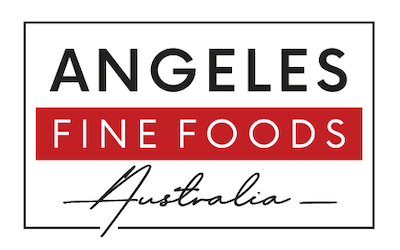
Australia imports a range of canned food products, complementing local production and catering to diverse consumer tastes, particularly for items not produced domestically or where imported alternatives are more cost-effective. The import landscape is influenced by Australia's trade policies, consumer preferences for international flavors, and competitive pricing from overseas producers.
Key Categories of Canned Food Imports in Australia
1. Canned Seafood: Seafood is one of Australia’s largest categories of canned food imports, with tuna, salmon, sardines, and mackerel being the most popular. Despite Australia’s robust fishing industry, the majority of canned seafood (especially tuna) is imported, with main suppliers including Thailand, the Philippines, and Indonesia, which provide cost-effective processing and packaging.
2. Canned Fruits and Vegetables: Canned fruits, such as peaches, pineapple, and mixed fruit cocktails, are commonly imported. Vegetables like tomatoes, beans, mushrooms, and corn are also significant imports, often sourced from countries with large-scale agricultural industries like Italy, New Zealand, and the United States. These products help meet demand during off-peak seasons for locally grown produce.
3. Canned Meats and Ready-to-Eat Meals: Although Australia has a significant meat industry, canned meats, such as corned beef and sausages, are imported to cater to certain demographics and niche markets. Ready-to-eat canned meals, including pasta dishes, curries, and soups, are increasingly popular among urban dwellers seeking convenience. The main suppliers of these products are countries like the United States, New Zealand, and various European nations.
4. Canned Dairy Products: While less prevalent than other canned goods, canned dairy products like condensed and evaporated milk are also imported, primarily from New Zealand and European countries, where dairy industries are well-established. These products are used in baking, cooking, and for consumers in remote areas where fresh dairy is less accessible.
5. Specialty and Ethnic Canned Foods: Australia’s multicultural population drives demand for a variety of international canned foods, including Mediterranean items like olives and artichokes, Asian condiments, Middle Eastern delicacies, and Latin American beans. These products are often imported from Italy, Spain, Greece, Thailand, and China, reflecting the diverse tastes within Australian communities.
Factors Influencing Australia’s Canned Food Imports
1. Trade Agreements and Tariff Policies: Australia has numerous free trade agreements (FTAs) with countries such as New Zealand, the United States, Japan, and several Southeast Asian nations, which facilitate the import of canned foods. These agreements help reduce import costs, making foreign products more competitive in the Australian market.
2. Consumer Demand for International and Convenient Foods: Australia’s population has a strong appetite for international foods due to its cultural diversity. This drives demand for canned foods that offer international flavors, catering to expatriates, immigrants, and Australians exploring global cuisines. Additionally, the trend towards convenience foods boosts imports of ready-to-eat and easy-to-prepare canned meals.
3. Local Production Limitations and Seasonality: Although Australia has a substantial agricultural sector, certain fruits and vegetables are not produced locally year-round, necessitating imports to meet consistent demand. Similarly, while there is local seafood production, processing costs are often higher, and imports help provide more affordable options to consumers.
4. Price and Quality Competitiveness: Canned food imports can often be priced lower than local products due to differences in labor, processing, and production costs. Imported canned seafood from Southeast Asia, for example, is often cheaper than locally canned seafood, making it a popular choice for budget-conscious consumers.
5. Health and Safety Standards: Australia has strict food safety and labeling standards that all imported canned products must meet. This ensures that only high-quality canned foods from countries with comparable standards enter the market, making products from the EU, New Zealand, and the United States particularly popular for their reputation for quality.
Primary Source Countries for Canned Food Imports to Australia
- Thailand, Philippines, and Indonesia: Major sources of canned seafood, especially tuna.
- Italy and Greece: Known for canned vegetables, olives, and Mediterranean specialties.
- New Zealand: Supplies dairy products and various canned fruits and meats, benefiting from close economic and trade ties with Australia.
- United States and European Union: Provide a mix of canned vegetables, ready-to-eat meals, and specialty products, often appealing to consumers looking for quality and variety.
In summary, Australia’s canned food imports provide essential diversity and convenience, helping bridge seasonal gaps in local production, catering to multicultural tastes, and offering affordable options for consumers. The mix of local and imported canned goods meets Australia’s evolving consumer demands for international flavors and convenient meal solutions.
Read our comprehensive guide to help find the ideal distribution partner, understand the Australian market, and unlock high growth potential.

Angeles Fine Foods Australia is a gourmet food importer, wholesaler, and distributor based in Sydney. Established in 2010, the company specializes in sourcing premium products, particularly fine cheeses and gourmet foods, from around the world. They work with over 80 brands, including local and international names, covering fresh and dry grocery categories. Their client base includes independent supermarkets, greengrocers, health food stores, and gourmet delicatessens across Australia.
With a focus on quality and innovation, Angeles Fine Foods supports businesses by offering tailored product solutions, flexible ordering, and dedicated account management. They are also HACCP-certified, ensuring high food safety standards. Their distribution network spans major cities like Sydney, Melbourne, Brisbane, and Tasmania.
Source: the website
![]() angelesfinefoods.com
angelesfinefoods.com
ANGELES FINE FOODS
Part A 131-139 Parramatta Road
Five Dock 2046
Sydney
Australia
Basile Imports is a prominent Australian company specializing in the import and distribution of high-quality gourmet food and beverage products, primarily from Italy. With over 40 years of experience, the company has built a reputation for sourcing premium items, including renowned brands like Auricchio cheeses, Colavita olive oil, La Molisana pasta, and Bauli baked goods. These products are widely recognized for their quality and authenticity in the food and beverage industry.
The company operates nationally in Australia, with warehouses and teams across all states. Basile Imports places strong emphasis on quality control, maintaining ISO 9001 certification and adhering to HACCP food safety standards. Their extensive infrastructure includes temperature-controlled storage facilities and a dedicated fleet for distribution, ensuring product integrity from procurement to delivery.
Source: the website
![]() online.basile.com.au
online.basile.com.au
BASILE IMPORTS
401 Dorset Road (PO Box 714)
BAYSWATER VICTORIA 3153
Australia
Benino Fine Foods is an Australian company established in 2002, specializing in importing and distributing premium gourmet foods from around the world. The business has grown significantly under the leadership of Chris Trajceski, leveraging over 30 years of industry experience. Initially focusing on imports from Poland and China, the company now sources products from over ten countries.
Benino offers a diverse range of items, including biscuits, cheese, canned fish, Mediterranean appetizers, oils, vinegars, and condiments. Their products are available through independent supermarkets, green grocers, and delis across Australia. Known for its adaptability and strong customer relationships, the company emphasizes quality and responsiveness to market demands.
Source: the website
![]() www.benino.com.au
www.benino.com.au
BENINO FOODS
10 Gatwood Close
Padstow NSW 2211
Australia
Global Food Distributors Pty Ltd is an Australian company established in 2001, specializing in the import and distribution of premium international and local food products. Based in Adelaide, South Australia, it operates additional distribution centers in Sydney and Melbourne. The company caters to a variety of food markets, offering a broad portfolio of products to meet evolving consumer demands.
The company provides high-quality food items with competitive pricing and reliable delivery services, aiming to support businesses with efficient supply chain solutions. They are also recognized for sourcing dolphin-safe tuna, reflecting a commitment to sustainable and ethical practices
Source: the website
![]() www.globalfood.com.au/
www.globalfood.com.au/
GLOBAL FOOD DISTRIBUTORS PTY Ltd
58 Diagonal Road
Adelaide SA
Australia
South Australia
Manassen Foods Australia, established in 1953, is one of the country’s leading food suppliers. The company specializes in distributing a diverse portfolio of both domestic and international food brands across various categories. It serves both retail and food service markets, working closely with partners to develop private label products and sourcing high-quality suppliers.
Manassen Foods emphasizes sustainability and health, offering vegan and gluten-free options while ensuring ethical and environmentally friendly practices. Their operations include product development, integrated supply chain services, and marketing support, with a national warehouse network that ensures efficient product delivery. Headquartered in Eastern Creek, NSW, they remain committed to fostering innovation in the Australian food market.
Source: the website
![]() manassen.com.au
manassen.com.au
Manassen Foods Australia Pty Ltd
8 Interchange Drive
Eastern Creek
NSW 2766
Australia

In Australia, food labeling regulations for canned and other packaged foods are governed by the Food Standards Code, established by Food Standards Australia New Zealand (FSANZ). Key labeling requirements include:
1. Mandatory Information: Labels must display:
- The name of the food, clearly describing its nature.
- A list of ingredients in descending order of weight.
- Nutrition Information Panel (NIP), showing nutrients per serving and per 100g.
- Use-by or best-before dates if the shelf life is less than two years.
- Storage and preparation instructions (if applicable for safety or quality).
- Allergen warnings for common allergens like nuts, milk, and gluten.
- Country of origin for compliance with Australian Consumer Law.
2. Legibility and Language: Labels must be in English, legible, and unambiguous.
3. Special Provisions: Products may need additional labeling for specific content like genetically modified ingredients or irradiated foods.
4. *Exemptions: Some foods, such as unpackaged items or those prepared and sold on-site, are exempt but must still provide allergen and other safety warnings.
These regulations are enforced by state food authorities and FSANZ, while the National Measurement Institute oversees the accuracy of weight and measure statements on labels.
For more details, consult the FSANZ guidelines or the NSW Food Authority resources for specific labeling standards tailored to your product type.
Useful information about Australia labelling regulations ACCC AUSTRALIAN COMPETITION & CONSUMER COMMISSION.
The Australian Competition and Consumer Commission (ACCC) is an independent statutory authority established by the Australian government to enforce competition and consumer protection laws under the Competition and Consumer Act 2010 (CCA). It plays a critical role in ensuring fair competition in markets, protecting consumers from misleading and unfair practices, and regulating industries to promote economic efficiency.
😥 Any bug here?
❗ Any mistake in this page devoted to the Australia food importers? Do your Company importing canned food in Australia has been not yet added here? Please inform us by email or whatsapp. Thanks you.